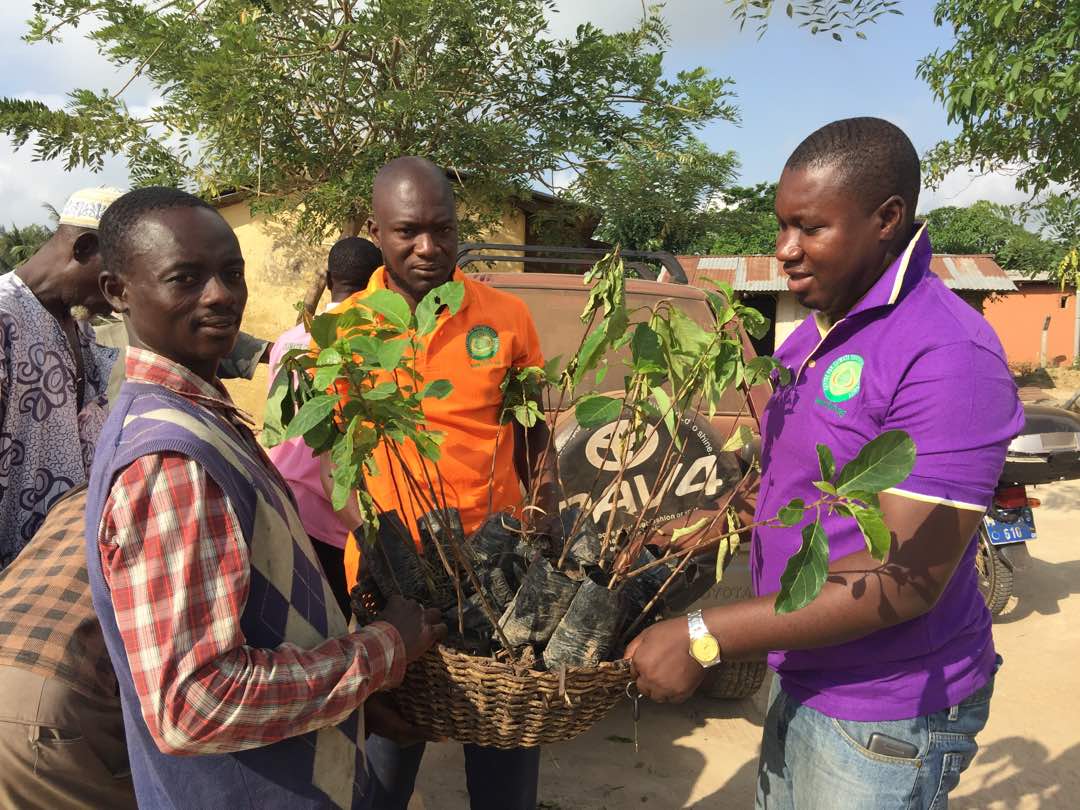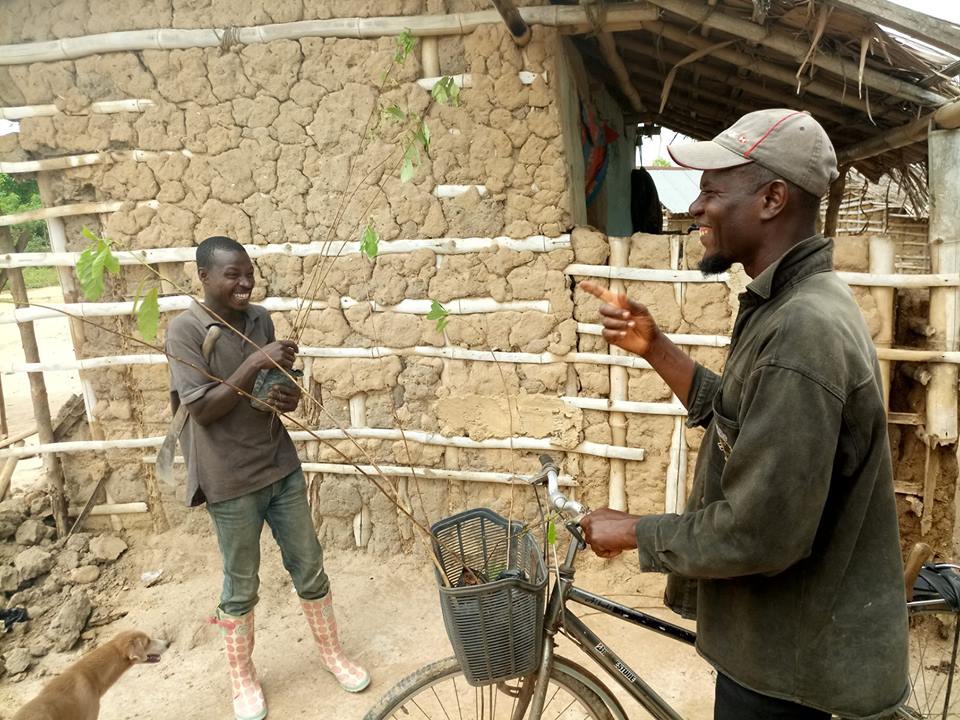
Timeabu, a farming community in the Ashanti region of Ghana, has in the past experienced levels of devastation of cocoa trees as a result of bad weather and poor rainfall with adverse impact on production.
To protect dying cocoa trees and the local ecology, the Centre for Climate Change and Food Security (CCCFS), a Ghanaian-based non-governmental organization, has adopted the community to pilot a tree planting program.
Since December 2017, the Centre has planted 200 trees on cocoa farms and other areas of the community, in addition to sensitization on best farming practices.
A beneficiary, Nana Dasebere Boama Darko, says the farmers are excited the trees will relieve them of severe weather condition and help provide the needed shade to nourish their crops.
The Centre plans to extend the exercise to other communities across the country.
“Protecting the ecology is very important. We are likely to live a shameful life if trees continue to die everyday,” said Mahmud Mohammed-Nurudeen, Executive Director of CCCFS. “Planting of the trees is also to sequester carbon, and help remove carbon dioxide from the air, which cools the earth.”
Despite their importance to life, humans have cut down half of the world’s trees.
“Every year we cut down over 50,000 square miles of forest worldwide for paper, agriculture, building materials and fuel,” observed Mohammed-Nurudeen.
Several research have proven that carbon release from deforestation accounts for 25 to 30 percent of the four to five billion tons of carbon accumulating every year in the atmosphere from human activities.
Ghana Bureau Chief of ClimateReporters, Kofi Adu Domfeh, who is among lead supporters of the tree planting

exercise, emphasized the need to put the trees back “any way we can, as fast as we can”.
“What you may not know is that trees also build soil and offer energy-saving shade that reduces global warming,” he said. “We want to create habitat for thousands of different species and also help to reduce ozone levels.”
The initiative is also supported by the Economy for the Common Good and senior officers of the Ghana Cocoa Board, Fuad Mohammed and Asante Abednago, who have committed to the community outreach to help rural farmers contribute to the government’s target of producing one million tonnes of cocoa.
The CCCFS aims to provide enabling environment for all species, make issues of food security relevant and tackle climate change head-on to make Ghana a better place to live.











